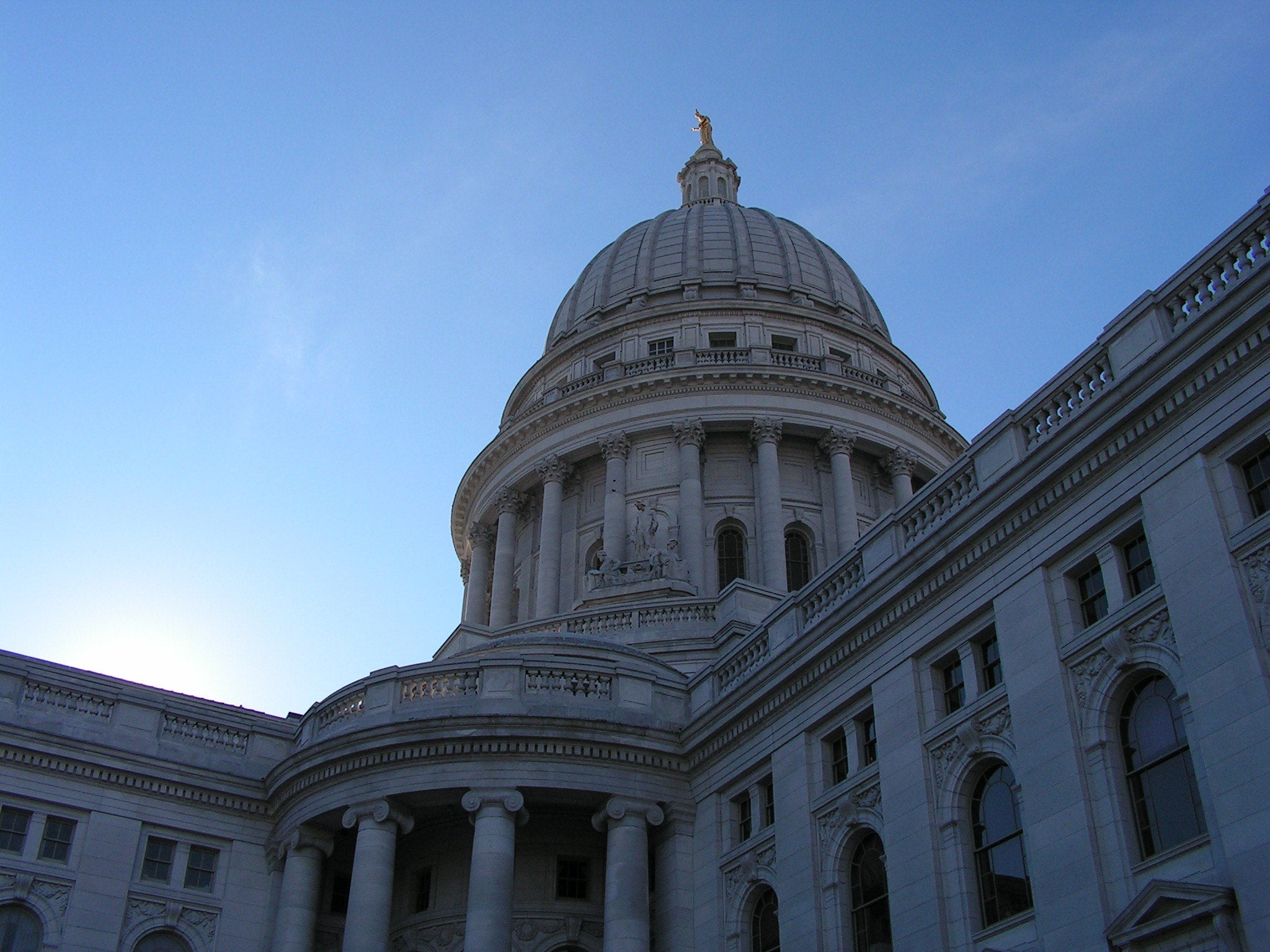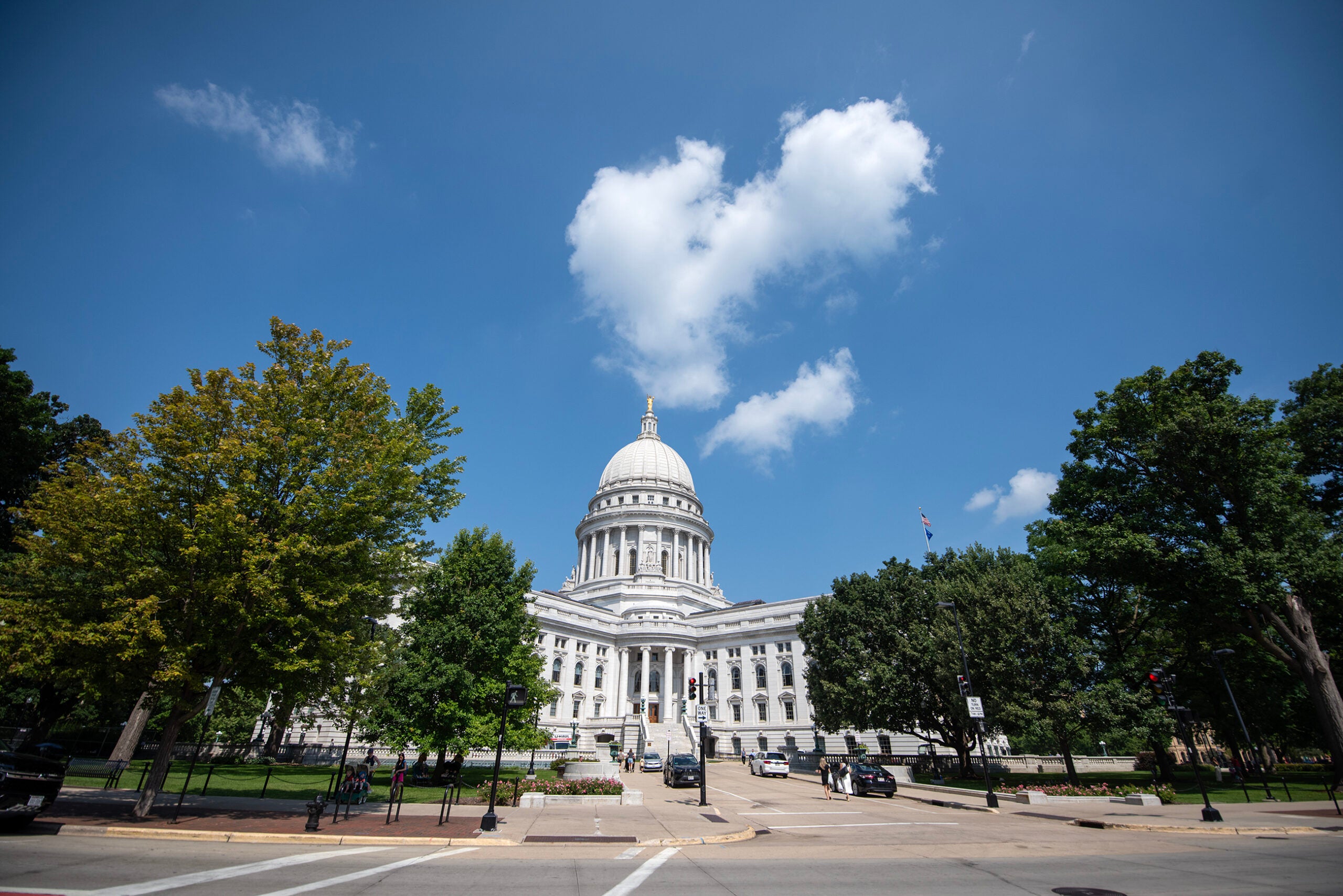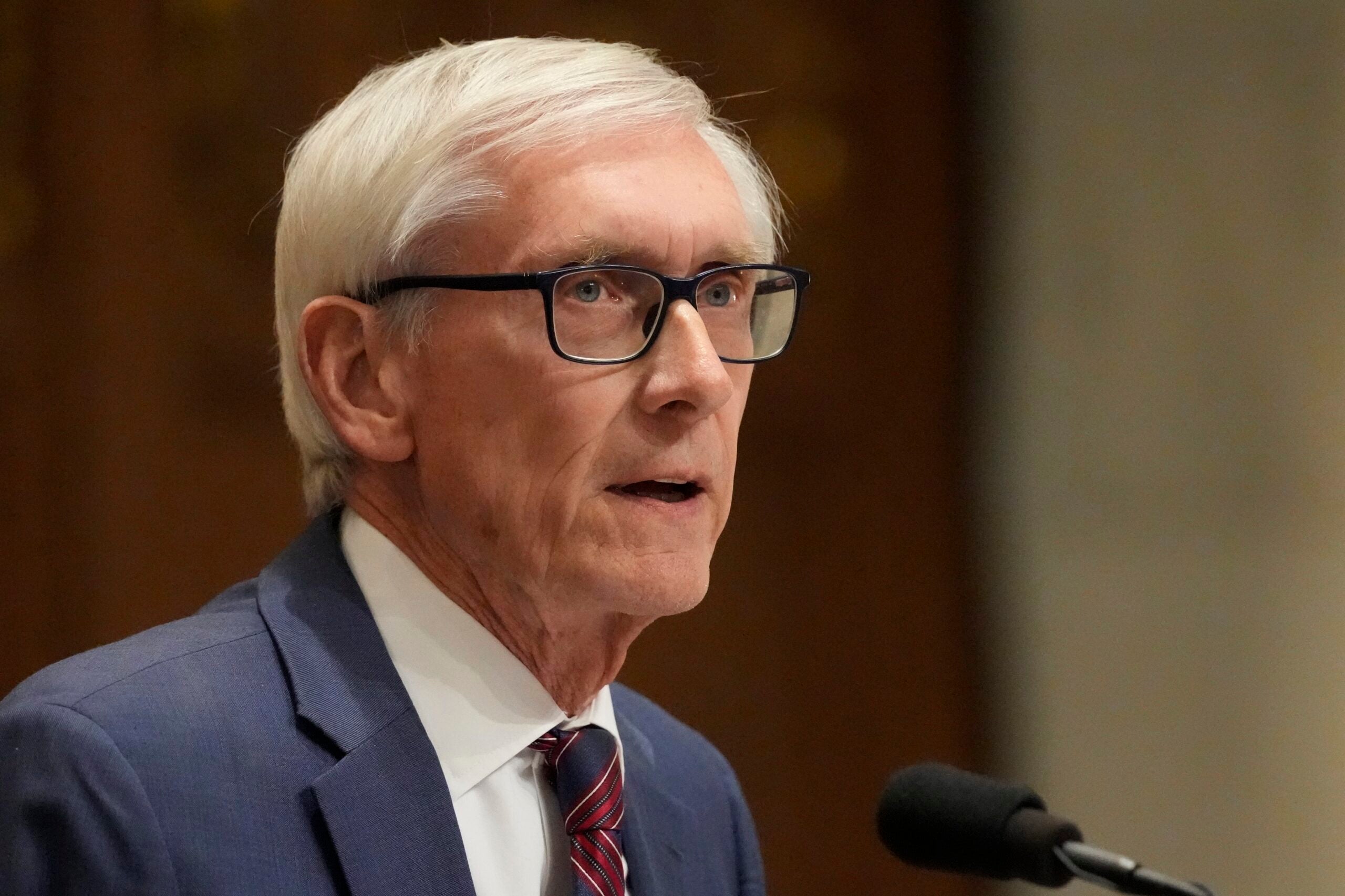A one-week waiting period for unemployment benefits in Wisconsin would be lifted under an extensive GOP plan released Monday that aims to address problems created by the spread of COVID-19 in the state.
State Assembly and Senate lawmakers are scheduled to meet in their first-ever virtual sessions on Tuesday and Wednesday to take up the bill.
In a prepared statement Monday morning, Senate Majority Leader Scott Fitzgerald, R-Juneau, said the sweeping, 87-page bill took into account previous proposals from Democratic Gov. Tony Evers as well as the $2 trillion federal economic stimulus bill approved a few weeks ago.
News with a little more humanity
WPR’s “Wisconsin Today” newsletter keeps you connected to the state you love without feeling overwhelmed. No paywall. No agenda. No corporate filter.
“There is no such thing as a perfect piece of legislation, but action is desperately needed right now,” Fitzgerald said.
Assembly Speaker Robin Vos, R-Rochester, and Majority Leader Jim Steineke, R-Kaukauna, lauded “the bipartisan work that went into the creation of this important bill.”
In a tweet, Steineke said about half of Assembly lawmakers plan to attend the extraordinary session in person. The other half will participate virtually.
Gov. Tony Evers said Monday he believes the Republican proposal doesn’t go quite far enough to support certain industries grappling with the fallout of the pandemic.
“There’s not much money on the table, and that concerns me,” the governor said at an online event hosted by the Greater Milwaukee Foundation on Monday afternoon. “There are some things, frankly, that are going to cost some money that we’re going to continue to push the Legislature on.”
Evers said those included more spending to support child care operations, farms, and nursing homes. He said he hopes to continue working with GOP leaders on additional proposals.
Notably, the GOP bill doesn’t include a provision floated last week that drew ire from Evers. Under that proposal, the Legislature’s state budget committee, which is controlled by Republicans, would have had control over state spending cuts spurred by the pandemic.
The state is expected to take a major revenue hit as sales and income taxes dip amid business closures and layoffs across Wisconsin.
The governor previously released two broad proposals related to the state’s COVID-19 response, including one that included a “sum sufficient” appropriation for the state Department of Health Services, essentially giving the department a blank check to respond to the pandemic.
GOP lawmakers who control the Legislature rejected those proposals, but included some elements of the governor’s plans in their bill.
One area of agreement between lawmakers and the governor is lifting a one-week waiting period for unemployment benefits in the state. Under the plan, the waiting period would be lifted retroactively, beginning March 12, and last until Feb. 7.
Another overlap between the governor and GOP lawmakers’ plans would allow temporary Wisconsin credentials for former and out-of-state health care providers. A third would allow pharmacists to extend most prescription refills by 30 days during the public health emergency.
Other highlights of the bill include:
- Allowing the Legislature’s budget committee to transfer up to $75 million from other state programs to pay for things related to the pandemic.
- Requiring health insurers to cover COVID-19 tests without a patient copayment or coinsurance, beginning on March 13.
- Barring insurers from charging patients more for out-of-network care related to COVID-19, as long as their regular provider offers those same services.
- Barring insurers from discriminating against anyone based on a past, current, or suspected COVID-19 diagnosis.
- Prohibiting retailers from accepting returns of food products, personal care products, cleaning products, and paper products during the public health emergency.
- Requiring the Wisconsin Economic Development Corp. to submit a plan to the Legislature and governor for supporting industries hurt by the pandemic, including tourism, manufacturing, agriculture, construction, and retail.
- Lifting annual testing requirements and teacher assessments for public, private and charter schools across the state.
- Reducing the number of required training hours for nurse aides.
Wisconsin Public Radio, © Copyright 2025, Board of Regents of the University of Wisconsin System and Wisconsin Educational Communications Board.







